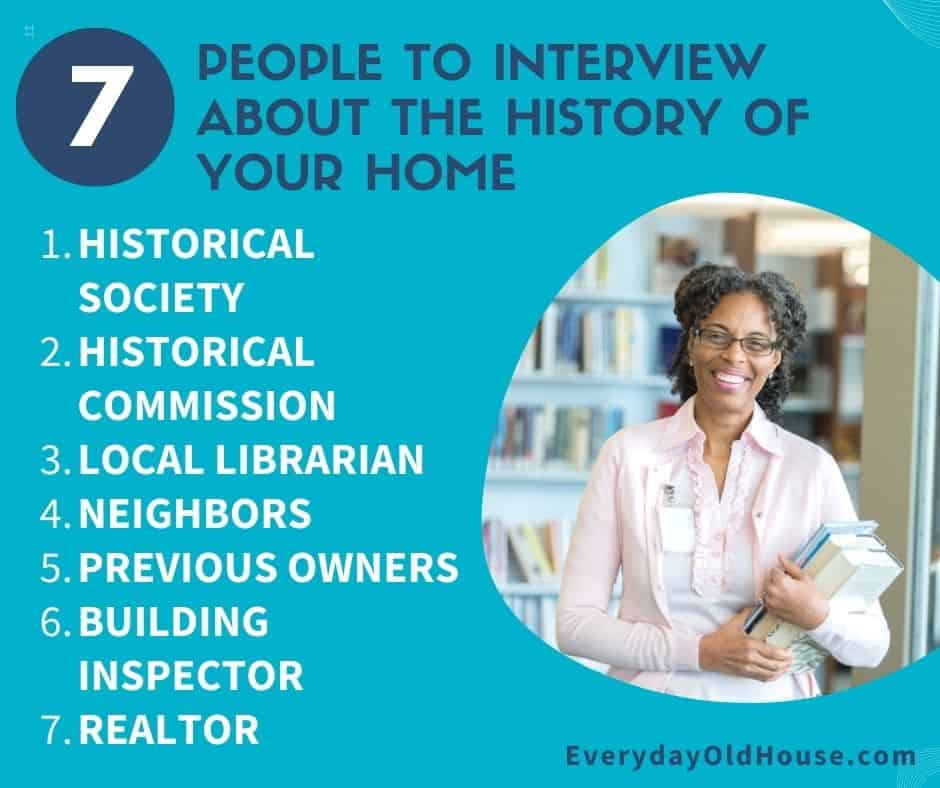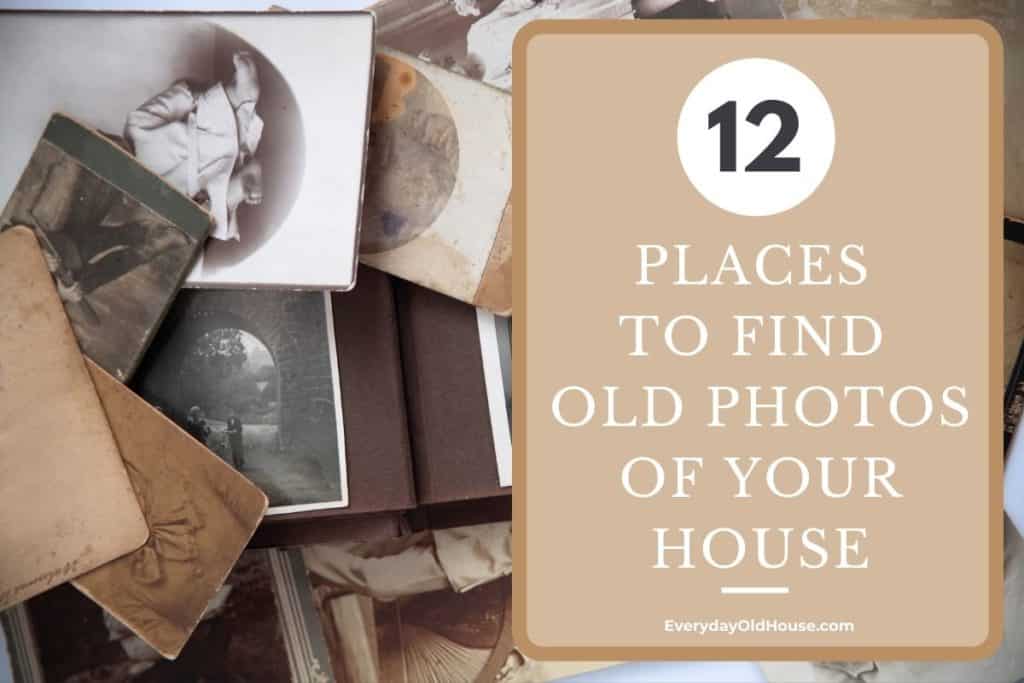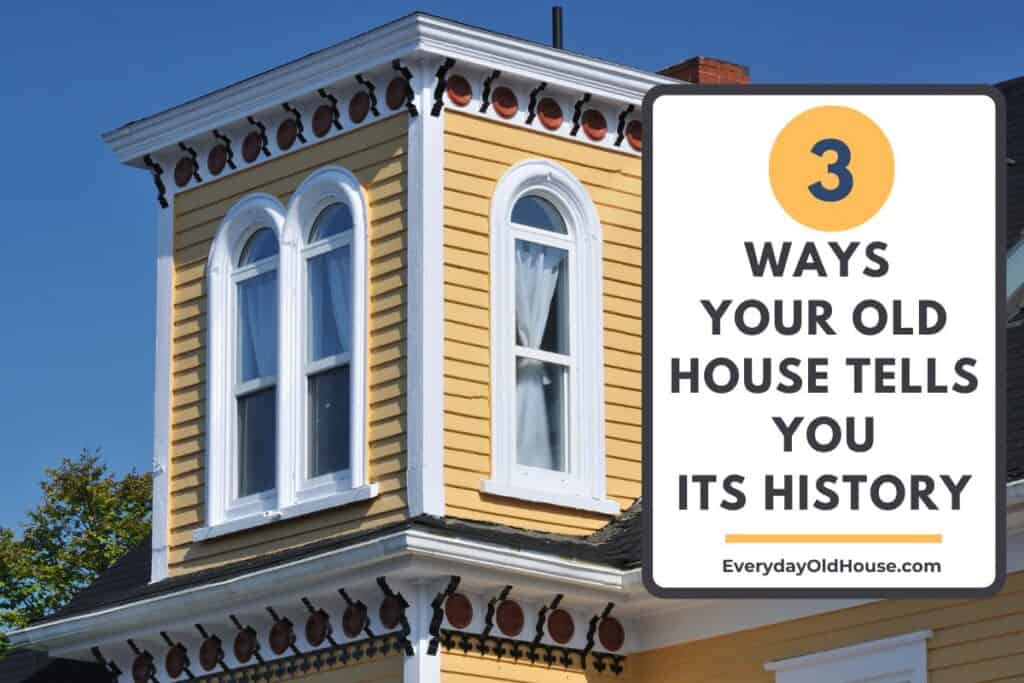Last Updated on January 29, 2024
You likely envision the process of researching the history of your home as a lonely endeavor – sitting solo in a dark basement surrounded by musty books stacked a mile high. But that’s not the case. Interviewing people are often an incredible resource in researching the history of your home. It’s amazing what you can find out about your house just by talking with the right people. And here’s 7 of the right people you should be talking to….

BEGINNER’S GUIDE TO HOME HISTORY RESEARCH
Interested in researching the history of your old house but unsure where to start? Grab my newly-release:
Beginner’s Guide: How to Trace the History of Your Old House
This 60-page guide takes you step-by-step through 25+ online and in-person resources to create a picture of your home’s history.

Why Interview People?
Following a “paper trail” of deeds and assessor cards can tell you a home’s construction date and its sales price. While helping in putting the puzzle pieces together of your home’s history, but it doesn’t create all the pieces. Interviewing people (i.e. the “people trail”) brings out the unique, personal stories that make a house a home.
Perhaps your house was known for hosting the best summer neighborhood parties with the best apple pies. Or raised a gaggle of kids known for their athleticism in high school (and nighttime hijinks of stealing the school mascot). Or maybe your home is known for a bit of shady bootlegging during Prohibition. Often these quirky, charming oral histories can only be captured by talking to someone.
Researching the History of Your Home – Who to Ask
Here’s 7 knowledgeable people to interview when researching the history of your home.
1. Historical Society Director
Your town’s historical society can be a treasure trove of information about your town. The function of historical society is to preserve and celebrate your town’s history. Which is exactly what you are looking to do….
Search online to locate your town’s closest historical society. Reach out and see if they have old census records, maps, city directories, or other documents that can help you narrow down the construction date of your house.
When I researched the history of my house, my local historical society provided am amazing amount of history of my neighborhood in just one email. I discovered that my house is located on one of the original roads (which was a Native American trail), and was a training ground for militia before the American Revolution.
2. Historical Commission Chair
Your municipality’s historical commission is different that the historical society. A historical society is a non-profit group funded via member dues, grants, and fundraisers. Meanwhile, the historical commission is an official town department with a budget provided via local taxes. They are directed by town law to develop and implement a local preservation program. So, a bit more formal.
While in small municipalities the people appointed to the historical commission are likely the same people who volunteer for the historical society, this might not be the case.
Therefore, it is still beneficial to reach out the historical commission chairperson to see if they can shed any light on your home’s history. Like the society, this is a group of people who take an active interest in the town’s history.
3. Local Librarian
Most local libraries devote a section just to your town’s history. These archives contain a wide range of resources, from newspapers, directories, telephone books, maps, and aerial photographs.
While these local collections are chock full of information, they can be VERY difficult to navigate. A significant number of historical information still remains on ancient media.
Like microfiche and microfilm.
Every heard of it? Every used it? If so, my condolences.
If you attended middle or high school in the 1980s like myself, you might still have nightmares using microfiche for research papers. …
Don’t try to conduct your research of your old house solo in the library. Connect with and rely on the expertise of the local librarian. They will know exactly where to look, saving you time, effort, and frustration.

4. Neighbors
Let’s face it, our neighbors know things. Good things and bad things. And if you find the right one, he or she can be a gold mine of information.
Your best method is to seek out those neighbors who have lived on your block for an extended period time. Engage and listen to their stories.
To help jog their memory, have a list of names of who lived in your house that you acquired through the other resources listed above. Mention these names to the neighbors and see where the stories take you.
There is one fallback of this method. Instead of relying on written records, you are relying on someone else’s memories. And those may not be completely accurate.
5. Previous Owners
While there commonly is a wall restricting communication between buyers and sellers during the buying process, that wall can come down in the future.
There’s a variety of ways to attempt to contact previous owners of your home. However, I believe that the most effective way might be through your neighbors. It’s likely there is neighbor who keeps in touch with your home’s previous neighbors and willing to ask on your behalf.
And don’t forget to ask for photos! Previous owners are the best source of old photos of your home.
6. Building Inspector
Most local jurisdictions maintain a building department (also called an engineer’s office, planning commission). This agency is responsible for maintaining a file documenting major changes or improvements to the property within their jurisdiction.
For example, a new build of a residence. A major renovation. A new bathroom. Anything that requires a permit, and/or an inspection performed to ensure compliance with applicable local building codes.
Ask to speak directly with an Inspector. Perhaps they are new and won’t have any insight into the history of your house. Or they could a long-time employee who can shed light on the history of your home.
If you don’t have success with finding a building inspector, you can also try a town clerk or assessor.
7. Realtor
A competent realtor has the research skills and access to a variety of resources to compile relevant information on a house.
Talking to a seasoned realtor with decades of experience in your town is a great way to capture stories about how your town, especially your neighborhood, has grown over the decades.
Disclaimer
I am not a professional home genealogist (nor play one on tv….). However, as a environmental consultant for 10+ years, I researched the history of 100+ commercial properties for property owners, potential buyers, and real estate developers. I utilized a variety of historical databases and resources – historical maps, government databases, interviews, and property visual clues – to create a picture of a property’s past.
My mission is to use these consulting skills (combined with genealogy classes) to help other homeowners to research the history of houses.
Note that my experience is limited to the United States. For European homes, I suggest this website.
Related Posts
Want to be the first to know about new posts? Be sure to follow me on Pinterest, Facebook, Instagram or Twitter of even Etsy! Or better yet… Subscribe below!
My monthly (admittedly sometimes more, sometimes less….) emails are like receiving a unexpected letter from an old friend WITHOUT needing to put on your slippers and walk out to your mailbox…. See? I got ya, my friend!)
[Note: My posts are proudly connected to these amazing link parties full of DIY ideas and inspiration!]



